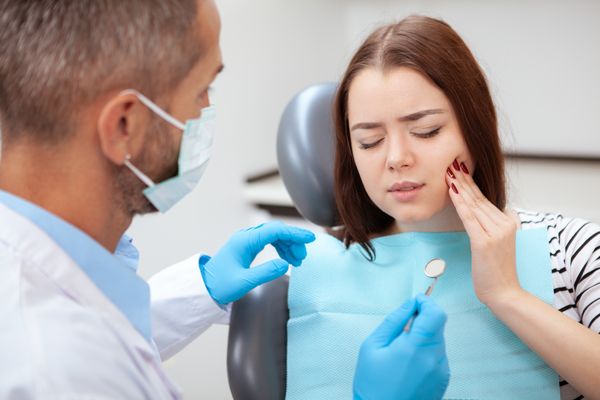Dental emergencies can be a stressful experience, filled with anxieties about what to do in the situation. No matter the type of dental emergency, it’s important to have some basic information to know how to handle the situation to make for a better dental recovery, whether you’re dealing with a broken tooth or some other oral condition that has become urgent.
To help people know how to deal with an emergency dental situation we’ve compiled basic information for the do’s and don’ts of dealing with dental emergencies. Read through the tips below and find out how to navigate a dental emergency that can help restore your oral health.
What to Do in a Dental Emergency?
Stop Any Bleeding in the Mouth
In any type of medical emergency, the first thing to do is always to stop any bleeding. For dental emergencies, this mainly applies to someone who is bleeding profusely instead of some blood mixed in saliva. When someone is bleeding in their mouth or from a tooth knocked out, you’ll want to use a clean and cold washcloth and apply direct pressure to the site of the injury. To help stop blood flowing down in the throat, you’ll want to lean forward; do not lie down or stand up as you may risk fainting.
Find Pieces of a Broken Tooth
If the situation is a broken or chipped tooth, be sure to look for any pieces that have fallen out. A dentist can bond the tooth back together, though it’s more likely when there is a clean break instead of a shattered tooth. Any pieces found should be placed in a small cup of milk and brought to the dentist’s office.
Keep Knocked-Out Teeth in Milk
As mentioned earlier, any part of a tooth and the tooth itself should always be put into milk to increase the chances of it being successfully placed back. Milk has a similar chemical composition as saliva, so it’s a perfect choice to keep teeth moist until you can get to your dentist or an emergency dentist.
Take Any Tooth Pain Seriously
Many people ignore their toothaches until they can’t be anymore, often trying to dull the pain with over-the-counter pain relievers. It’s important to never ignore tooth pain, it’s an indication that something is wrong, but not all tooth pain qualifies as an emergency. For home treatment, you can floss around the tooth that is in pain and see if anything was lodged there. If the flossing makes no difference, you could have a cavity, abscess, or another dental issue that needs to be checked out.
Use Cold Compresses
A cold compress should be in the freezer for any adult because they are excellent at reducing pain, swelling, and inflammation. During a dental emergency, a cold compress can give you relief and help keep the area from swelling further while waiting to see a dentist, but be sure to wrap it in a towel to prevent any damage to your skin.
What Not to Do During Dental Emergencies
Don’t Panic During a Dental Emergency
No matter the type of dental emergency, it’s important not to panic and try to remain calm to take steps that can help you through the situation. If you’re not the one with the emergency, staying calm is a big help to the person who is, helping them to focus on getting to a dentist and taking steps to save their teeth or prevent further problems.
Don’t Touch the Root of the Tooth
Never, ever touch the root of a tooth, and always pick up the tooth by the crown (the part of the tooth you can see in your mouth). The root of a tooth has very delicate periodontal cells that when damaged, make the chances of successful re-implantation less likely.
Don’t Hesitate to Go to an Emergency Room
Most people don’t know that they can go to an emergency room if going through a dental emergency, especially if a dentist is unavailable or there has been significant facial trauma or uncontrolled bleeding. A hospital will be better equipped to handle any blood loss, broken facial bones, or other possible complications other than dental health. Once the emergency part is taken care of, then you can make an appointment with your dentist to take care of the dental parts of the incident.
Don’t Use Aspirin for Pain
Many people will reach for over-the-counter pain relievers to help with dental pain till they can see their dentist, but if there is any bleeding then avoid taking aspirin at all costs. Aspirin is a blood thinner and will make stopping it very difficult. Although you still want to avoid aspirin as if going for emergency dental treatment, any bleeding they cause will be more difficult to stop by natural clotting or through medical means.
Dental Emergency Services
What is just as important as knowing what to do during a dental emergency is knowing if your dentist offers emergency services. Take note of whether your dentist does or if there are other dental emergency services that you could call if it occurs. Dr. Li and the care team at Ellerslie 66 Dental Clinic also provide emergency dental services and strive to make dental care affordable, and accessible to all of our patients. We will work with you to find a treatment plan for your dental veneers that works for your financial situation.
If you have questions about our emergency dental service, our team of compassionate professionals can help you understand all of your options. Contact us now or give us a call at (780) 705-9866.

